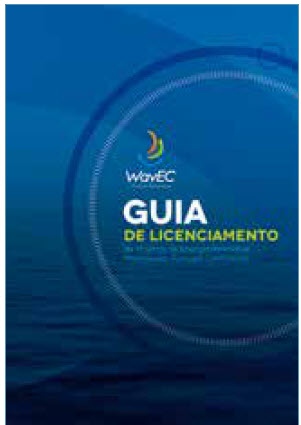PORTUGAL
OCEAN ENERGY POLICY
NATIONAL STRATEGY
The National Ocean Strategy 2013-2020 is the public policy instrument in Portugal for the sustainable development of the economic sectors related to the ocean, including the energy sector. The three key pillars of the maritime economy are: Knowledge, Spatial Planning, and Promotion of National Interests. It is available at: http://www.dgpm.mam.gov.pt/Documents/ENM_Final_EN_V2.pdf
During 2016, the Government established an Inter-Ministerial Commission for Maritime Affairs (CIAM) and created an inter-ministerial Working Group, called ‘Energy at Sea’, with the mission of discussing a “development model that ensures the rationalization of the means used to develop offshore electricity”, aiming at “enhancing investment in R&D, including technological demonstration projects and pre-commercial projects in this area.” This group prepared the report “Energy at Sea - Roadmap to an Industrial Strategy for Oceanic Renewable Energies” which includes a set of recommendations for attracting investment in this area. It concludes that there is a clear opportunity to attract projects to Portugal, highlighting that the realization of these projects in Portugal and the creation of value around them should be a priority of the Working Group on Marine Renewable Energy.
The report (Portuguese version) is public available at:
https://www.dgrm.mm.gov.pt/xportal/xmain?xpid=dgrm&xpgid=genericPageV2&conteudoDetalhe_v2=6337667
REGULATORY FRAMEWORK
In March 2015, the Portuguese Law no. 38/2015 was created, laying down the bases of the Planning and Management of the National Maritime Space (LBOGEM), defining the legal framework that allows for the implementation of marine spatial plans in the whole national maritime space, including the continental shelf beyond 200 nautical miles.
Ocean energy projects in Portugal require the following licenses:
- License for water resources utilization – managed by the Portuguese Environmental Agency (APA). This license is the main consent required and can be authorized through a license or concession:
- A license is required for devices deployed for less than one year and for installed capacity below or equal to 25 MW;
- A concession is mandatory for more lengthy time periods. In this case, a competitive public examination must be carried out, starting with a public announcement by the competent authority
- Environmental license – managed by the Coordination Committee on Regional Development (CCDR) which is the regional authority;
- License for the power production or grid connection – a request made by the developer to the Portuguese Electricity Distribution (EDP);
- Building license for infrastructure on land (e.g. substation, cable routes) administered by the municipal council of the area where the project is to be installed.
|
In June 2016, WavEC organized a workshop to present the Licensing Guide for Marine Renewable Energies in Portugal to a group of public entities. This Guide has been partially funded by H2020 RICORE project. The final version (in Portuguese) has been launched on WavEC’s annual seminar in October and is available at: http://www.wavec.org/content/files/Guia_Wavec_web.pdf The English version will be available in 2017.
In parallel, the Agência Nacional de Inovação (ANI), has also a role in funding applied research and innovation activities. ANI is more oriented to stimulate business-oriented research in Portugal. The main sources of the funds managed by ANI are the Operational Programmes. |
 |
The Operational Programme of the national strategic reference framework 2014-2020, known as Portugal 2020, is the main instrument for business investment, defining the financing priorities in the application of the European Structural and Investment Funds in Portugal. It is comprised of four thematic Operational Programmes and seven regional Operational
Programmes directly addressed to the promotion of research and innovation in the regions concerned. In particular, 2 topics can address marine energy technology: competitiveness and internationalization through COMPETE 2020 Programme and sustainability and efficient use of resources through POSEUR Programme.



